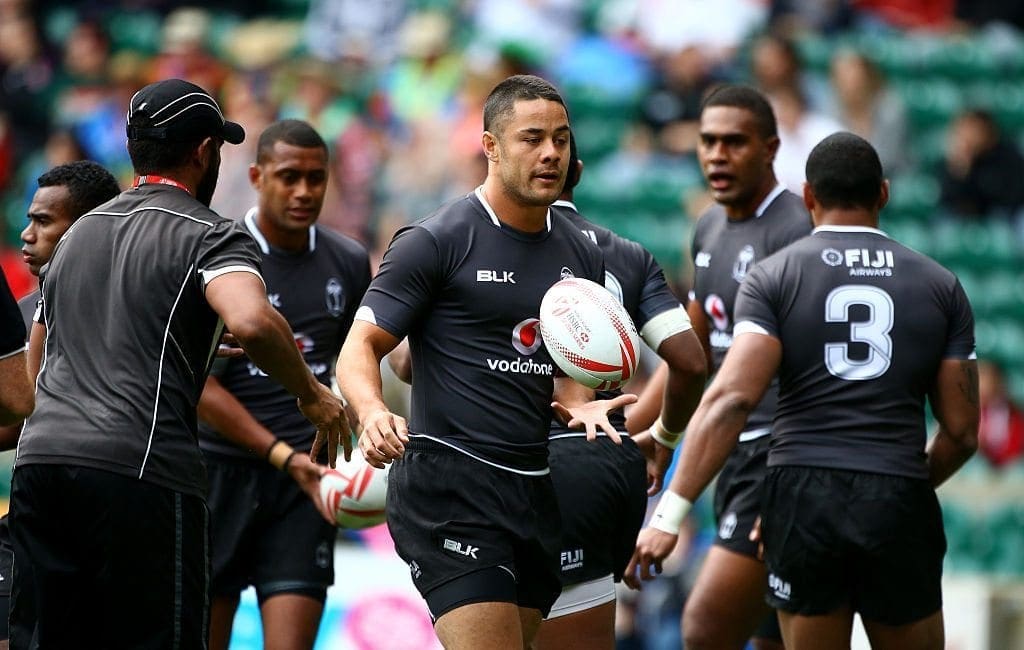The Rugby League International Federation announced on Tuesday that eligibility criteria are to be overhauled in order for ethnic islanders to play for their country of heritage.
From October 1, players will no longer be forced to choose between State of Origin and their “lower tier” national team, which is any nation outside the big three of New Zealand, Australia and England.
Any player not selected for those three nations will be free to play for any other, which could see Jarryd Hayne lining up for Fiji and Anthony Milford for Samoa among others.

The RLIF also extended the residency-qualifying period from three to five years, to attempt to avoid farcical repeats of situations like the one that saw Semi Radradra play for Australia just three years after moving to the country.
Keeping eligibility rules constantly up to date with the climate of international rugby league is important.
Rules that may have suited five years ago now do not, evident in the public outrage at the aforementioned Radradra debacle, as well as the multiple situations last year that saw players like Milford spurn Samoa in the case of Origin selection.
“These rules will allow the best players to represent their countries and ensure that fans will get to see the best product whenever international rugby league is played,” said 2017 World Cup CEO Andrew Hill.
This is true – not only would most fans love to see players such as Robbie Farah playing for Lebanon and James Tedesco for Italy, but the players would no doubt jump at the opportunity also.
But this is far short of “the miracle saviour required to rescue international league”. This is little more than a necessary Band-Aid to an issue that is still bleeding.
20 years on from the commencement of the NRL era, international rugby league is still in its’ infancy stages. Outside New Zealand, Australia and England, talent is very thin, and it is quite concerning.
In that time period, we have had three World Cups - 2000, 2008 and 2013 – all with the same Final, Australia winning two of them and New Zealand one.
Over the same time period, the rugby union World Cup has seen five different finalists, with the same final having not appeared twice.
Rugby league fans will wax lyrical about the importance of a strong Samoa, Fiji and Tonga for the overall strength of international rugby league.
But as important as the Pacific Islands are to the league community, the road to the international success of the code runs through Europe, not the Pacific.
Outside England, other European countries that feature in the top 10 of the RLIF world rankings include France (#5), Ireland (#6), Wales (#8) and Scotland (#9).
Only small players on the rugby league globe, these countries are quite the opposite in union, all contesting the Six Nations tournament each year, with all but Scotland having won since 2010.
The Catalans Dragons have no doubt been fantastic for rugby league in France – it’s unlikely they would be a robust fifth in the world without Catalans involved in the English Super League.
We almost saw the same positive effect take place in Wales, with the Celtic Crusaders taking place in 2009, 2010 and 2011 Super Leagues before administration and liquidation.
This is hugely disappointing for Welsh Rugby League. Were they still contesting the top-level European rugby league competition, who knows where the Welsh program may be now?
Meanwhile, in rugby union, Wales reached a high of #2 in the world last year, summiting even famed world powers South Africa and Australia.
Their club scene is much the same. Four Welsh club sides contest the Pro12 competition, alongside eight other Irish, Scottish and Italian clubs.
This is not to say Pacific Nations are not important in rugby union. Obviously, they produce a large amount of the talent for countries such as Australia and New Zealand.
But the model of success that rugby union has taken forward for international growth and development has not included attempting to maintain these nations as the next best thing outside the big three – that’s simply not realistically possible.
Europe is where the money, population and prospective fans are. Europe is the future of international rugby league.
The RLIF allowing the release of New South Wales hooker Robbie Farah to Lebanon is a nice touch but is also simply papering over the cracks.
It’s an important step, but much more need to be taken.























Comments are closed.